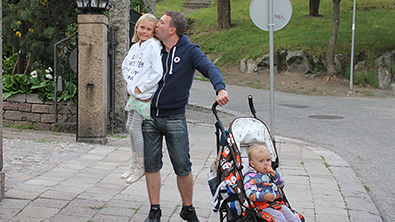How to Navigate Single Parenting after Divorce

Re-establishing Stability and Security for Your Children
by Deirdre Hally Shaffer, MSW, LCSW
Family systems are wrenched apart during divorce, affecting all family members including all children regardless of their age. Even when the divorce, brings relief and peace to families, the impact during and following the transition from separation to divorce is substantial.
Parenting suffers as marriages end. Mothers and fathers are feeling grief, guilt, fear, anger, and sadness which interferes with their ability to be fully present and primarily child-focused. As ex-spouses struggle with emotions and the logistics of recreating new homes and lives, they are often more self-focused than usual. They are trying to survive a multitude of changes. Children may notice that Mom and Dad are stressed, crying more, raising their voices, and getting irritated at small things.
At the same time, children are often in a state of shock that their family life as they knew it has ended. Confusion, anxiety, and depression are normal along with wondering “Did I do something to break up Mom and Dad?”
Keep in mind that children are egocentric and see themselves at the center of their worlds, so it is natural for them to consider whether they had a role in the demise of their parents’ marriage. And most children also harbor a secret, unspoken desire that their parents will one day reunite.
After the divorce, it becomes clear that parenting in Mom’s home is different than parenting in Dad’s home. It is critical that co-parents reach an agreement in terms of rules, discipline, activities, expectations for chores, allowance, bedtime, carpooling, homework time and after school jobs.
When parents set aside their differences and clearly establish child’s best interest as the top priority, their children experience an easier transition. Security and stability, routine, clear expectations and respect for the other parent are all part of this package for success.
Here are some recent scenarios that have occurred with clients with whom I’m working.
Are these statements True or False. Test yourself:
True or False
- ▪ I can introduce my kids to my girlfriend after we’ve been together about a month. It is best for them to see me happy no matter who I’m with.
- ▪My life is my life and my ex has no right to know where I’m taking the kids on my time or who we’re hanging out with.
- ▪If it’s my day with the kids and a work emergency comes up, it is up to my ex to figure out childcare.
- ▪ I have my kids on the weekends and usually have Saturday lunch at a local bar. It is fine to bring them with me.
Answers
- ▪ False. Wait until a committed relationship, 6-12 months, and give your ex the courtesy of knowing when the introduction will occur. Introducing dating partners in new relationships is risky as your child may become attached and experience loss again if the relationship ends.
- ▪ False. Your ex DOES have the right to know who their younger children are with. It is easier to be open if there have been past concerns about appropriate people and venues. On the other hand once things have settled down, you are not obligated to tell your ex everything. Establish some boundaries that you both can live with.
- ▪ False. When it is your day to have the kids, you must be the one to figure out the logistics of childcare.
- ▪ False. We do not live in Europe. In America, it is not common practice for children under 18 to be in bars. This would be inappropriate and would require you finding a more suitable, child-friendly atmosphere for lunch.
Cooperative co-parenting requires mature and often times selfless discussion to identify solutions that benefit the children. Be mindful that a child who is caught in the middle of parental arguments is more likely to experience anger and depression.
If one parent has concerns that their child’s needs aren’t being met or that there is danger, the first step is to discuss it with the other parent. If disagreement continues, consider a counselor or mediator to reach a resolution.
Seek support from others who have walked in your shoes. Groups like Parenting Without Partners are a wonderful resource when feeling isolated or alone in parenting challenges.
A Few Tips For a Smoother Transition
- Frequently assure your children that they are loved by both parents and families.
- ▪ Support and encourage time with the other parent.
- ▪ Please do not in any way disparage the other parent. Your child identifies as being ½ you and ½ your ex.
- ▪ Ask your child how they are feeling about the transitions that are occurring.
- ▪ Make time to be fully engaged in fun activities amidst the turmoil.
- ▪ Work things out ahead of time with your ex when making child related decisions. When you have reached agreement, then pull your child into the discussion.
- ▪ When new partners enter the picture down the road, do your best to consider this one more person to love your child.
©2015 Alpha resource Center
